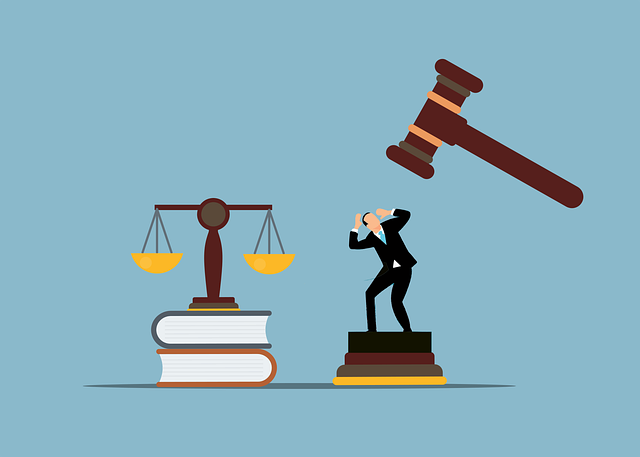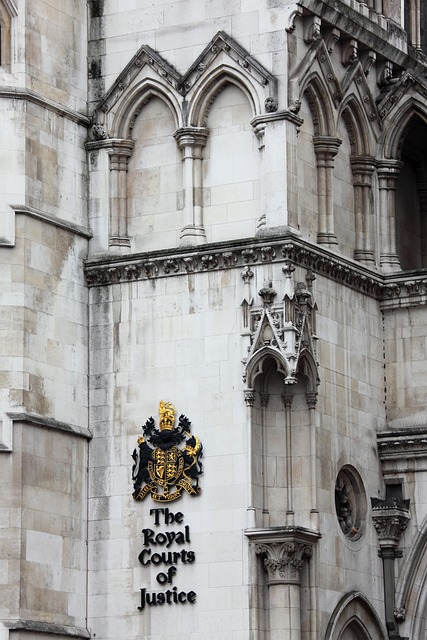Legalized translations of foreign documents for use in the UK must be carried out by professional Legalised Translation Services UK that provide certified translations and handle both the translation into English and the subsequent legalisation process. This involves a qualified translator verifying the accuracy and completeness of the document, followed by legalisation at a UK embassy or consulate if the document originates from outside the country. Such services ensure that the translated documents comply with the UK's stringent standards expected by its legal entities, including government departments, courts, and immigration services. To be recognized as legitimate within the UK's legal system, these translations must also include a statement of accuracy and an affidavit from the translator. It is imperative to engage with translation providers who are native speakers in both source and target languages, hold accreditation from reputable organisations like the Institute of Translation and Interpreting (ITI) or Association of Translation Companies (ATC), and possess a comprehensive understanding of legal terminology to ensure precision. This process is critical for various legal proceedings, including immigration applications, property transactions, and other formal matters, ensuring that all translated documents meet statutory requirements and maintain the integrity of legal proceedings in the UK.
Navigating the complexities of legal and administrative processes in the UK can be daunting for individuals and businesses alike, particularly when original documents are in a foreign language. This article delves into the necessity for certified translations of such documents, elucidating why they are indispensable for recognition by UK authorities. We will explore the intricacies of legalising documents, the benefits of engaging reputable Legalised Translation Services UK, and provide a comprehensive guide to ensure your translated documents meet all statutory requirements. Furthermore, we address common challenges and offer practical solutions in the realm of document translation for UK usage. With the right approach, you can facilitate smoother interactions with UK authorities and institutions.
- Understanding the Necessity for Certified Translations of Legalized Documents in the UK
- The Process and Importance of Legalising Documents for Use in the UK
- Key Considerations When Selecting Legalised Translation Services in the UK
- A Step-by-Step Guide to Certified Translation of Documents for UK Authorities
- Navigating the Challenges: Common Issues and Solutions in Legalised Document Translation for UK Use
Understanding the Necessity for Certified Translations of Legalized Documents in the UK

Navigating the legal framework within the United Kingdom often necessitates the presentation of documents in English, even if they were initially drafted in another language. This is where the role of certified translations of legalised documents becomes paramount. Authorities in the UK, such as government departments, courts, and immigration services, require that foreign documents be accurately translated and carry a certification that validates their authenticity. Legalised translation services in the UK are specialized in providing this critical service, ensuring that translations meet the rigorous standards set by UK authorities. The certification process involves a certified translator affirming the accuracy of the translation, followed by its legalisation at a UK embassy or consulate abroad, or by a registered translator in the UK. This dual process of certification and legalisation is crucial for documents to be accepted as legitimate and usable within the UK’s legal system, thus facilitating smooth transactions in various legal processes, from property purchases to visa applications. Engaging professional legalised translation services in the UK ensures compliance with statutory requirements and upholds the integrity of legal proceedings.
The Process and Importance of Legalising Documents for Use in the UK

When engaging with UK authorities, it is imperative that foreign documents are acknowledged as authentic. This process often necessitates legalisation or apostille, which verifies the document’s authenticity and allows it to be recognized by the relevant UK institutions. The initial step involves obtaining the appropriate certificate from the issuing country’s competent authority. For many countries, this is typically a notary public or embassy. Following this, the document must undergo legalisation through the UK’s Foreign, Commonwealth & Development Office (FCDO) if it was issued in a Commonwealth country or through the relevant consular section if from a non-Commonwealth nation. This procedure authenticates that the document’s signature, seal, or stamp is genuine and corresponds to the person or institution that signed it. Once legalised, the document can be utilised within the UK’s jurisdiction.
To ensure seamless acceptance of legal documents in the UK, enlisting professional Legalised Translation Services UK becomes essential. These services facilitate the translation of your documents into English while also managing the legalisation process on your behalf. This saves time and guarantees that all translations are certified and comply with the UK’s legislative standards. Accurate translations not only uphold the integrity of the original document but also expedite the evaluation process by UK authorities, thereby minimizing delays and ensuring your documents are legally sound for their intended use. It is crucial to engage with reputable Legalised Translation Services UK providers who are well-versed in the intricacies of legal translation and document authentication to navigate this process effectively.
Key Considerations When Selecting Legalised Translation Services in the UK

When engaging with legalised translation services in the UK, it is imperative to consider the credibility and professionalism of the service provider. A document’s legality often hinges on the accuracy and formality of its translation. Legalised translation services in the UK must adhere to strict standards set by official bodies, ensuring that translations are not only faithful to the source material but also meet the legal requirements for use in UK authorities. Prospective clients should verify whether translators are native speakers of both the source and target languages and possess the necessary accreditation, such as membership in the Institute of Translation and Interpreting (ITI) or Association of Translation Companies (ATC). Furthermore, a service’s track record with UK authorities can be indicative of their expertise. Opting for providers with established experience in legalised translations will mitigate risks associated with document rejection due to translation inaccuracies.
Another key consideration is the provision of certified translations that come with a statement of accuracy and a signed affidavit from the translator. This ensures that the translated document carries the same weight as its original version within the UK legal system. Additionally, a reputable legalised translation service will offer a clear process for obtaining an apostille or similar legalisation if required, facilitating the smoothest possible integration of your documents in UK legal proceedings. Clients should also inquire about the service’s turnaround time and any additional costs that may arise from notarisation or legalisation processes. By carefully assessing these aspects, individuals and organisations can select a legalised translation service in the UK that aligns with their needs and upholds the integrity of their documents for official use.
A Step-by-Step Guide to Certified Translation of Documents for UK Authorities

When engaging with UK authorities and requiring documents to be recognised, certified translations are a critical component of the process. The first step in this process is to identify a professional translation service that specialises in legalised translation services within the UK. These services ensure that your translated documents meet the high standards expected by UK authorities. The translator must be adept at translating into and from English, possess the necessary accreditation, such as the Association of Translators or Interpreters (ATI) or Institute of Translation and Interpreting (ITI), and have a deep understanding of legal terminology to ensure accuracy and compliance with UK law.
Once you’ve secured a qualified translator, the translation process commences. The document must be translated word-for-word, maintaining the original text’s intent and context. After the initial translation, the document undergoes a thorough proofreading phase where it is scrutinised for any linguistic or legal inaccuracies. Post-proofreading, the translated document must be signed and stamped by the translator to confirm its authenticity. This certification verifies that the translation is complete and exact. Following this, if the original document requires apostrophe or legalisation, it must be legalised by a notary public and then by the relevant UK embassy or consulate in the country where the document originated. The final step involves presenting both the original and translated documents to the UK authority, ensuring they are satisfied with the certified translation’s authenticity and accuracy for your intended purpose, whether it be immigration, education, or legal proceedings.
Navigating the Challenges: Common Issues and Solutions in Legalised Document Translation for UK Use

When engaging with UK authorities, the translation of legalised documents is a critical and nuanced task that demands precision and adherence to specific legal standards. Legalised Translation Services UK encounter various challenges, primarily due to the stringent requirements set by the UK’s legal framework. A common issue is ensuring the accuracy and equivalency of translations, as legal texts often contain complex terminology specific to UK law. To address this, professional translators must possess a deep understanding of both the source and target languages, as well as the legal context in which these documents operate. Additionally, each translation must be accompanied by proper certification or legalisation to validate its authenticity. This is typically done through the Foreign and Commonwealth Office (FCO) or other designated authorities, which adds an additional layer of complexity and procedural adherence. To overcome these hurdles, it is essential for translators to maintain direct communication with these bodies and stay updated on any changes in legalisation processes. Furthermore, employing experienced and certified translators who are specialised in legal translation services can significantly reduce the risk of errors and rejections by UK authorities. By combining expertise with a thorough understanding of the legalisation process, Legalised Translation Services UK can provide accurate and accepted translations, ensuring compliance and facilitating smoother interactions with UK officials.
When engaging with UK authorities, the accuracy and authenticity of legalized document translations are paramount. This article has elucidated the critical role of certified translations in this context, guiding readers through the nuances of the process, from understanding its necessity to navigating common challenges. The key takeaway is that selecting a reliable legalised translation service provider in the UK, such as those offering Legalised Translation Services UK, is essential for ensuring compliance with legal standards and facilitating smooth interactions with authorities. By adhering to the guidelines outlined in our step-by-step guide and being aware of potential issues and their solutions, individuals and organizations can confidently proceed with document translation, secure in the knowledge that their translations will be accepted and respected by UK authorities.
